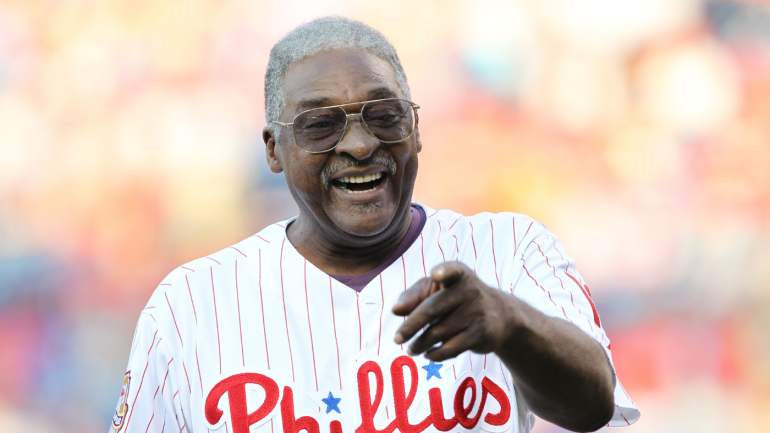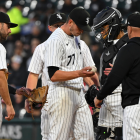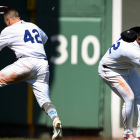
Dick Allen, one of the most fearsome and accomplished hitters of his era, died Monday at the age of 78. Allen's family announced his death through his Twitter account. Allen spent parts of 15 seasons in the majors, from 1963 through 1977. Over that span, he hit 351 home runs, authored a WAR of 58.8, and maintained an OPS+ of 156, which is good for 19th place on the all-time list.
Allen, who spent nine of his 15 MLB seasons with the Phillies and another three with the White Sox, was a seven-time All-Star. He won 1972 American League MVP honors with Chicago and the 1964 NL Rookie of the Year Award with Philadelphia. Allen also suited up for the Cardinals, Dodgers and Athletics.
Despite a strong Hall of Fame case, Allen never managed more than 18.9 percent support in 14 years on the BBWAA ballot. He fell off the ballot in 1997. Earlier this year, Allen's No. 15 was retired by the Phillies.
With sadness in our hearts, we need to share that Dick passed away this afternoon at his home in Wampum pic.twitter.com/BEIrcQlfRG
— Dick Allen (@DickAllen_15) December 7, 2020
A native of Wampum, Pennsylvania, Allen was a standout basketball player in high school but wound up signing with the Phillies out of high school because of the sure signing bonus. Allen produced at a high level despite the pitching-friendly nature of the 1960s and despite the searing discrimination he faced throughout his career -- most notably during a roiling minor-league season in Little Rock, Arkansas, and in his early years with the Phillies.
Although it made his life demonstrably more difficult at the time, Allen stands as a pioneering figure -- one who refused to temper his Black individualism despite the demands his era that he do just that. He held out for the salaries he thought he deserved. He insisted on being called "Dick" instead of his boyhood name "Richie," and early in his career he brawled with a veteran white teammate who made a racially insensitive remark to him. Toward the end of his Phillies tenure, he exchanged barbs with fans by scrawling messages in the dirt of the on-deck circle.
That undaunted nature of Allen's came at a cost. In addition to being forced to wear a batting helmet at almost all times during games because of objects being thrown at him from the stands, Allen also endured short-sighted appraisals of his character in the press. Those lingering sentiments no doubt cost Allen at least in his early years on the Hall of Fame ballot. Thanks to Allen's personal courage, though, the subsequent generation of Black ballplayers were able to hew more closely to their true identities while playing a game that for so long insisted they behave otherwise. Little wonder, then, that Reggie Jackson once referred to Allen as "the boss among Blacks."
Injuries and off-the-field issues cost Allen games and by extension the counting numbers that would've made his Hall of Fame appeal even greater. Even though the honor eluded him during his living years, hope remains that he'll one day be elected by the Era Committee. In a cruel coincidence, the committee tasked with evaluating the cases of Allen and his contemporaries was supposed to meet this year, but that meeting was rescheduled for 2021 because of the ongoing COVID-19 pandemic.
Regardless of whether the Hall of Fame ever calls, Allen stands as a legend of the sport.






















